
Step-by-step guidance about how to make peer-reviewed research articles and unrefereed preprints available open access.
- Subject:
- Applied Science
- Information Science
- Material Type:
- Reading
- Author:
- Peter Suber
- Date Added:
- 10/26/2022

Step-by-step guidance about how to make peer-reviewed research articles and unrefereed preprints available open access.
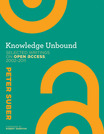
In these texts, Peter Suber makes the case for open access to research; answers common questions, objections, and misunderstandings; analyzes policy issues; and documents the growth and evolution of open access during its most critical early decade.
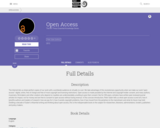
The Internet lets us share perfect copies of our work with a worldwide audience at virtually no cost. We take advantage of this revolutionary opportunity when we make our work "open access": digital, online, free of charge and free of most copyright and licensing restrictions. Open access is made possible by the Internet and copyright-holder consent, and many authors, musicians, filmmakers and other creators who depend on royalties are understandably unwilling to give their consent. But for 350 years, scholars have written peer-reviewed journal articles for impact, not for money and are free to consent to open access without losing revenue. In this concise introduction, Peter Suber tells us what open access is and isn't, how it benefits authors and readers of research, how we pay for it, how it avoids copyright problems, how it has moved from the periphery to the mainstream and what its future may hold. Distilling a decade of Suber's influential writing and thinking about open access, this is the indispensable book on the subject for researchers, librarians, administrators, funders, publishers and policy makers.
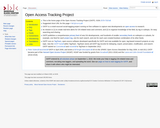
OATP is a crowd-sourced social-tagging project running on free software to capture new developments on open access to research. Its mission is (1) to create real-time alerts for OA-related news and comment, and (2) to organize knowledge of the field, by tag or subtopic, for easy searching and sharing.
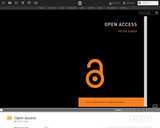
The Internet lets us share perfect copies of our work with a worldwide audience at virtually no cost. We take advantage of this revolutionary opportunity when we make our work “open access”: digital, online, free of charge, and free of most copyright and licensing restrictions. Open access is made possible by the Internet and copyright-holder consent, and many authors, musicians, filmmakers, and other creators who depend on royalties are understandably unwilling to give their consent. But for 350 years, scholars have written peer-reviewed journal articles for impact, not for money, and are free to consent to open access without losing revenue.
In this concise introduction, Peter Suber tells us what open access is and isn’t, how it benefits authors and readers of research, how we pay for it, how it avoids copyright problems, how it has moved from the periphery to the mainstream, and what its future may hold. Distilling a decade of Suber’s influential writing and thinking about open access, this is the indispensable book on the subject for researchers, librarians, administrators, funders, publishers, and policy makers.
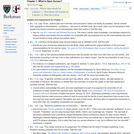
The Internet lets us share perfect copies of our work with a worldwide audience at virtually no cost. We take advantage of this revolutionary opportunity when we make our work “open access”: digital, online, free of charge, and free of most copyright and licensing restrictions. Open access is made possible by the Internet and copyright-holder consent, and many authors, musicians, filmmakers, and other creators who depend on royalties are understandably unwilling to give their consent. But for 350 years, scholars have written peer-reviewed journal articles for impact, not for money, and are free to consent to open access without losing revenue.
In this concise introduction, Peter Suber tells us what open access is and isn’t, how it benefits authors and readers of research, how we pay for it, how it avoids copyright problems, how it has moved from the periphery to the mainstream, and what its future may hold. Distilling a decade of Suber’s influential writing and thinking about open access, this is the indispensable book on the subject for researchers, librarians, administrators, funders, publishers, and policy makers.